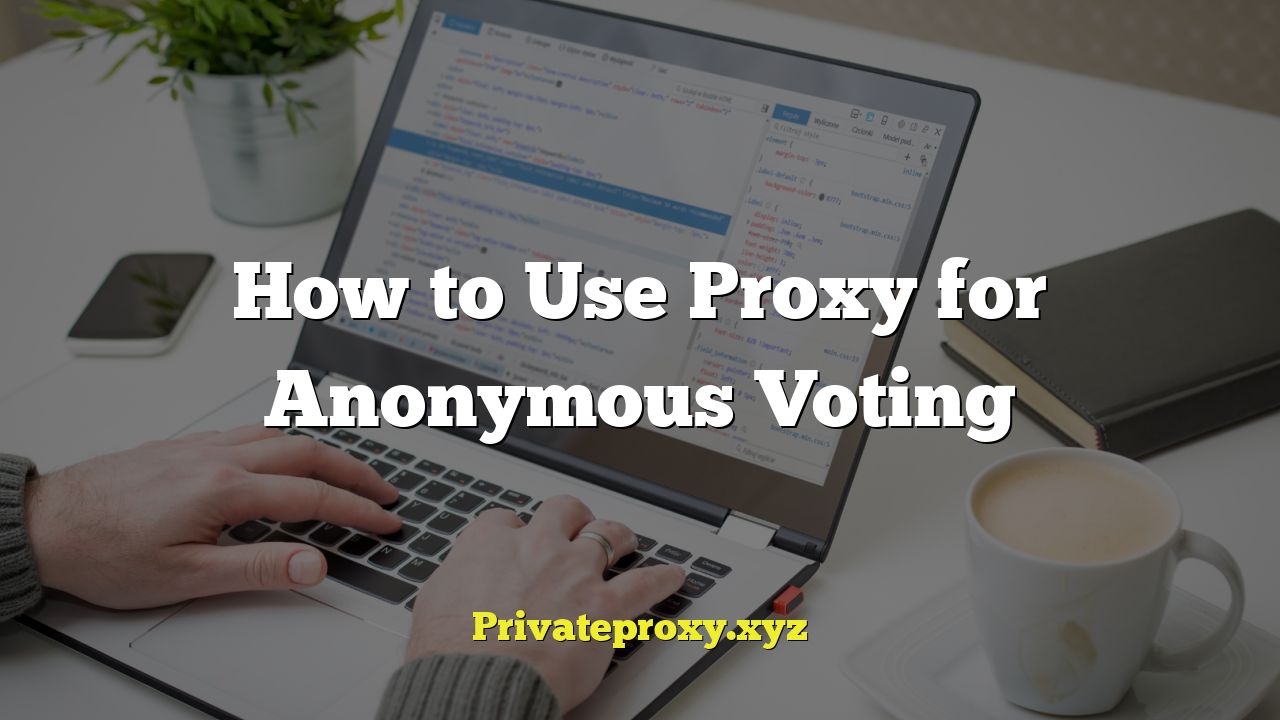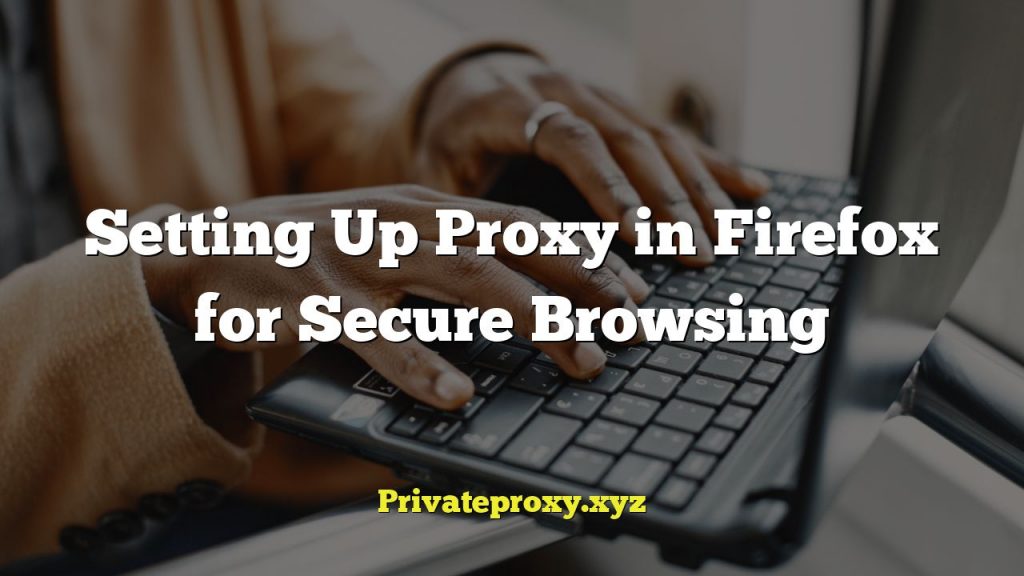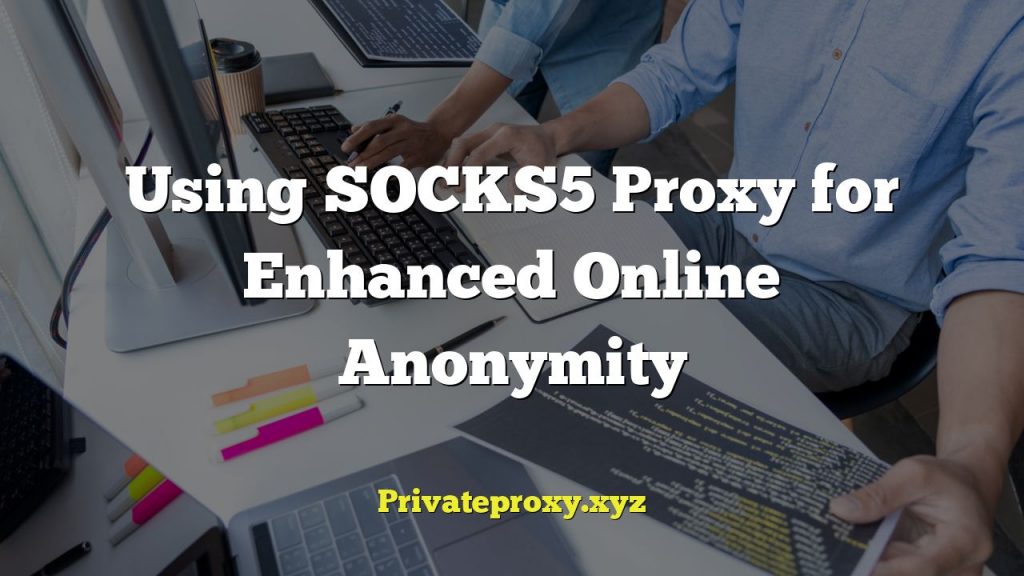
Introduction: Proxy Servers and Anonymity
In today’s digital age, privacy is a growing concern. Many online activities, including voting, leave digital footprints that can potentially be traced back to individuals. While absolute anonymity is difficult to achieve online, using a proxy server can significantly enhance your privacy and make it harder to link your vote to your identity. This article will explore how proxy servers work, the different types available, and how to use them effectively to participate in online voting with enhanced anonymity. It’s crucial to remember that the legality and ethical implications of anonymous voting can vary depending on jurisdiction and the specific voting system being used. Always ensure your actions comply with relevant laws and regulations.
Understanding Proxy Servers
A proxy server acts as an intermediary between your computer and the internet. When you use a proxy, your internet traffic is routed through the proxy server, which then forwards it to the website you are trying to access. The website only sees the IP address of the proxy server, not your actual IP address. This helps to mask your location and identity.
- Proxy servers hide your IP address.
- They can encrypt your internet traffic (depending on the type of proxy).
- Proxies can be used to bypass geographical restrictions.
Think of a proxy server like a post office box. Instead of sending mail directly to your home address, you send it to the post office box. The post office then forwards the mail to the intended recipient, hiding your home address.
Types of Proxy Servers
There are several different types of proxy servers, each offering varying levels of security and anonymity. Here are some of the most common types:
HTTP Proxies
HTTP proxies are designed specifically for web traffic (HTTP and HTTPS). They are relatively easy to set up and are suitable for basic web browsing. However, they may not encrypt your traffic, leaving it vulnerable to eavesdropping.
SOCKS Proxies
SOCKS proxies are more versatile than HTTP proxies and can handle various types of internet traffic, including web browsing, email, and file transfers. They typically offer better security and anonymity than HTTP proxies because they can encrypt your traffic.
Transparent Proxies
Transparent proxies, also known as intercepting proxies, do not hide your IP address. They are often used by organizations like schools and businesses to monitor and filter internet traffic. They are not suitable for anonymous voting.
Anonymous Proxies
Anonymous proxies hide your IP address but may still identify themselves as proxies. While they offer better anonymity than transparent proxies, they are not the most secure option.
Elite/Highly Anonymous Proxies
Elite or highly anonymous proxies not only hide your IP address but also do not identify themselves as proxies. They provide the highest level of anonymity and are the best choice for activities where privacy is paramount.
Choosing the Right Proxy for Anonymous Voting
When choosing a proxy server for anonymous voting, it’s essential to consider several factors:
- Anonymity Level: Opt for an elite/highly anonymous proxy to maximize your privacy.
- Security: Ensure the proxy server uses encryption (e.g., SOCKS5) to protect your data.
- Reliability: Choose a proxy server with a stable and reliable connection to avoid interruptions during the voting process.
- Location: The location of the proxy server can affect your perceived location. Choose a location that aligns with the voting requirements.
Free proxy servers are often unreliable and may log your activity, compromising your anonymity. It’s generally better to pay for a reputable proxy service that offers better security and privacy.
Finding and Setting Up a Proxy Server
There are several ways to find and set up a proxy server:
Online Proxy Lists
Many websites offer lists of free proxy servers. However, these lists are often outdated and unreliable. It’s crucial to test the proxies before using them for voting.
Paid Proxy Services
Paid proxy services offer more reliable and secure proxies. They typically provide a wider range of locations and better performance. Some popular paid proxy services include Smartproxy, Oxylabs, and Bright Data.
Setting up a Proxy in Your Browser
Most web browsers allow you to configure proxy settings. The exact steps may vary depending on your browser, but here’s a general guide:
- Open your browser’s settings or preferences.
- Search for “proxy” or “network settings.”
- Enter the proxy server’s address and port number.
- Select the appropriate proxy type (e.g., HTTP or SOCKS).
- Save the settings.
Using Proxy Software
Some software programs can manage proxy connections for you. These programs often offer features like automatic proxy rotation and testing.
Verifying Your Anonymity
After setting up your proxy server, it’s essential to verify that it’s working correctly and that your IP address is being hidden. You can use online tools like WhatIsMyIPAddress or IPLocation to check your IP address and location.
If the IP address and location shown by these tools match the proxy server’s information, then your connection is being routed through the proxy successfully.
Best Practices for Anonymous Voting
Using a proxy server is just one step towards enhancing your privacy during online voting. Here are some additional best practices:
- Use a Virtual Private Network (VPN) in conjunction with a proxy: A VPN encrypts all of your internet traffic, adding an extra layer of security. Using both a VPN and a proxy can significantly enhance your anonymity.
- Disable Cookies and Tracking: Cookies and tracking scripts can be used to identify you even when using a proxy. Clear your browser’s cookies and disable tracking in your browser settings.
- Use a Secure Email Address: Avoid using your personal email address for voting. Create a separate, anonymous email address specifically for this purpose.
- Be Mindful of Metadata: Metadata is data about data. Ensure that the files or information you upload during the voting process do not contain any personal information or identifying metadata.
Legal and Ethical Considerations
The legality and ethical implications of anonymous voting can vary depending on the specific voting system and the laws of your jurisdiction. In some cases, anonymous voting may be permitted or even encouraged. In other cases, it may be restricted or prohibited. It’s essential to research and understand the relevant laws and regulations before attempting to vote anonymously.
Furthermore, consider the ethical implications of anonymous voting. While anonymity can protect your privacy and prevent coercion, it can also make it more difficult to hold individuals accountable for their votes. Weigh the potential benefits and risks carefully before deciding to vote anonymously.
Conclusion
Using a proxy server can be an effective way to enhance your privacy and anonymity when participating in online voting. By choosing the right type of proxy, setting it up correctly, and following best practices for online security, you can significantly reduce the risk of your vote being linked to your identity. However, it’s crucial to remember that absolute anonymity is difficult to achieve online, and the legality and ethical implications of anonymous voting should always be considered.
Always research the specific voting system being used and ensure that your actions comply with all applicable laws and regulations. By taking these precautions, you can exercise your right to vote while protecting your privacy.


